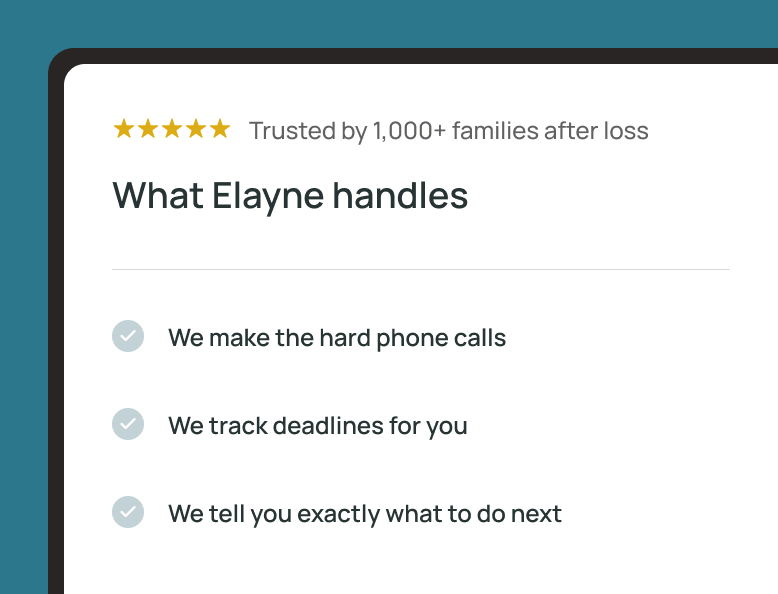When a parent passes away unexpectedly, their adult child might find themselves in the unexpected position of executor of their estate. While it can be an honor to carry out this process, navigating probate court can be complicated. If you're grieving, overwhelmed, and now responsible for settling an estate—you’re probably asking the question, “How long is this going to take?”
The short answer? It depends.
What is probate?
Probate is the legal process that validates a will, settles debts, and distributes assets to beneficiaries. It’s essentially the court’s way of making sure everything is handled properly and according to the law. If your loved one left a will, the court uses it as a guide to distribute the estate. If there’s no will, the estate is considered "intestate," and the court will follow state law to determine who gets what.
As the executor, your job is to:
- File the will with the court
- Notify creditors and beneficiaries
- Inventory assets
- Settle any outstanding debts and taxes
- Distribute the remaining assets to beneficiaries
How long probate court takes (typically)
The probate process can take anywhere from 6 months to 2 years, and sometimes even longer.
Here’s a general timeline of what to expect:
- Initial Filing (1–3 months): After death, the will must be filed with the court and a petition submitted to appoint an executor. Depending on how backlogged the courts are (especially in larger cities), this can take several weeks.
- Inventory & Appraisal (2–4 months): Identify and value all assets—bank accounts, retirement funds, real estate, and personal belongings. This can take time, especially getting official appraisals for a home or collectibles.
- Notice to Creditors & Settling Debts (4–6 months): Legally, you have to allow a window for creditors to make claims. In many states, creditors have up to 4 months from the date of public notice to come forward. This waiting period is unavoidable.
- Court Approvals & Distributions (3–6 months): Once debts are settled, you can petition the court to approve final distributions. Delays often come from needing additional court approval for the sale of a house.
What causes probate delays?
Several factors can slow down probate:
- No Will: If your loved one died without a will, the court has to appoint an administrator and follow intestate laws, which adds time.
- Multiple Heirs or Disputes: Disagreements among beneficiaries can delay proceedings significantly.
- Complex Assets: Estates with real estate, businesses, or out-of-state property require additional filings and court oversight.
- Taxes & Debts: Final tax returns must be filed, and estate taxes (if applicable) paid before distributions are made.
Even simple mistakes, like a missing signature or incomplete inventory, can add weeks or months to the timeline.
Can you avoid probate?
With probate being a long and arduous process, it’s best avoided by estate planning in advance, saving months of court involvement and thousands in legal fees. To avoid probate, your estate planning should include:
- Living Trust: Place major assets in a revocable living trust. The trustee can distribute everything privately and efficiently.
- Joint Ownership: Assets held in joint tenancy with right of survivorship (like a shared home or joint bank account) pass directly to the surviving owner.
- Beneficiary Designations: Accounts like life insurance, retirement funds, and payable-on-death (POD) bank accounts allow you to name beneficiaries directly. These bypass probate altogether.
- Small Estate Affidavit: In some states, if the estate is below a certain dollar threshold (anywhere from $15,000 to $100,000), you can use a simplified process that skips formal probate.
Grieving is hard enough. Adding legal responsibilities, court deadlines, and financial pressure to that grief is overwhelming. The probate process, while important for protecting beneficiaries and ensuring fairness, is often slow, frustrating, and emotionally draining.
If you’re currently an executor or beneficiary:
- Be patient—it really does take time.
- Stay organized—keep detailed records of every transaction and communication.
- Get help—a probate attorney or estate professional can save you from costly mistakes.
If you’re reading this in advance of dealing with an estate, use the time to talk to your loved ones about planning. Trusts, updated wills, and designated beneficiaries can make an enormous difference.
In the end, probate is just one part of the journey through loss and closure. It’s not easy, but with the right preparation, it doesn’t have to be harder than it already is.















































